
Come shepherding
This journal was started to give readers a more personal experience of shepherding, White Gum Wool style.
Browse the archive:

To Catch A Sheep
It occurred to me that not everyone knows how to catch (and immobilise) a sheep. Here’s a tutorial, just in case you are ever confronted with a rogue sheep careening through an agricultural show.
Catching a healthy sheep in the paddock is an art form, and one neither I nor any of my dogs have mastered. About the only time you really need to catch a sheep is if they have been struck by fly.
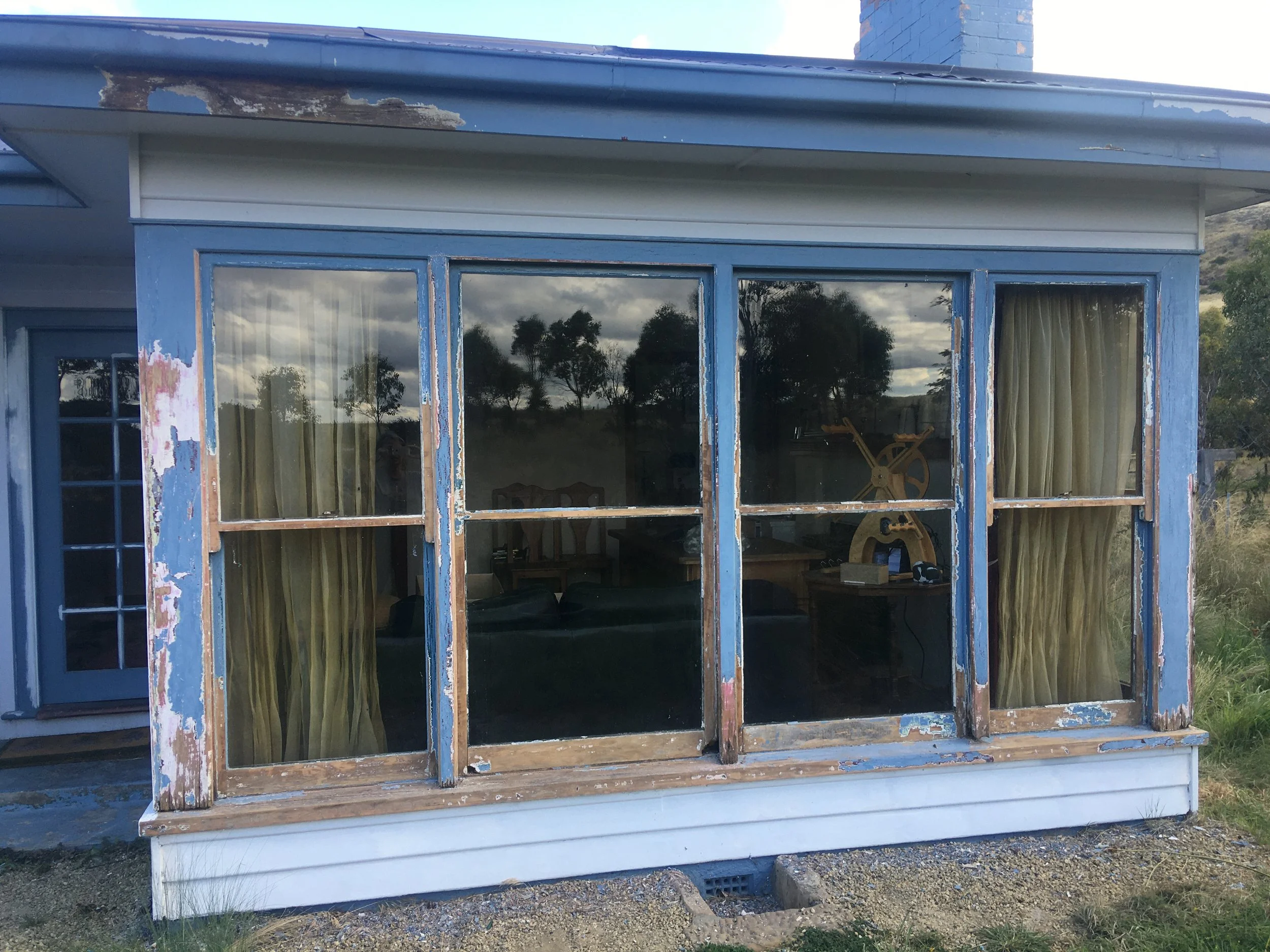
Repairs and Maintenance
I know I’m not alone in my benign neglect of routine maintenance, but that’s not much solace when it starts coming home to roost. My last few months have been so full of delayed maintenance I’ve reluctantly come to the conclusion that life is 95% maintenance and only 5% exciting new projects. Unfortunately, by attempting for years to live life as though it were the other way around, not only have I neglected maintenance shockingly, I’ve simultaneously created a whole lot more maintenance to ignore. Sigh.

Lamb Etiquette
It’s been just two months since the adopted lambs arrived. It’s been a wonderful time of learning for all of us: the lambs, their babysitters (the named sheep), Pearl and me. It’s taken me back to my earliest days of shepherding, when NONE of the flock, bar my 6 pet lambs, wanted to know me, let alone follow me around!
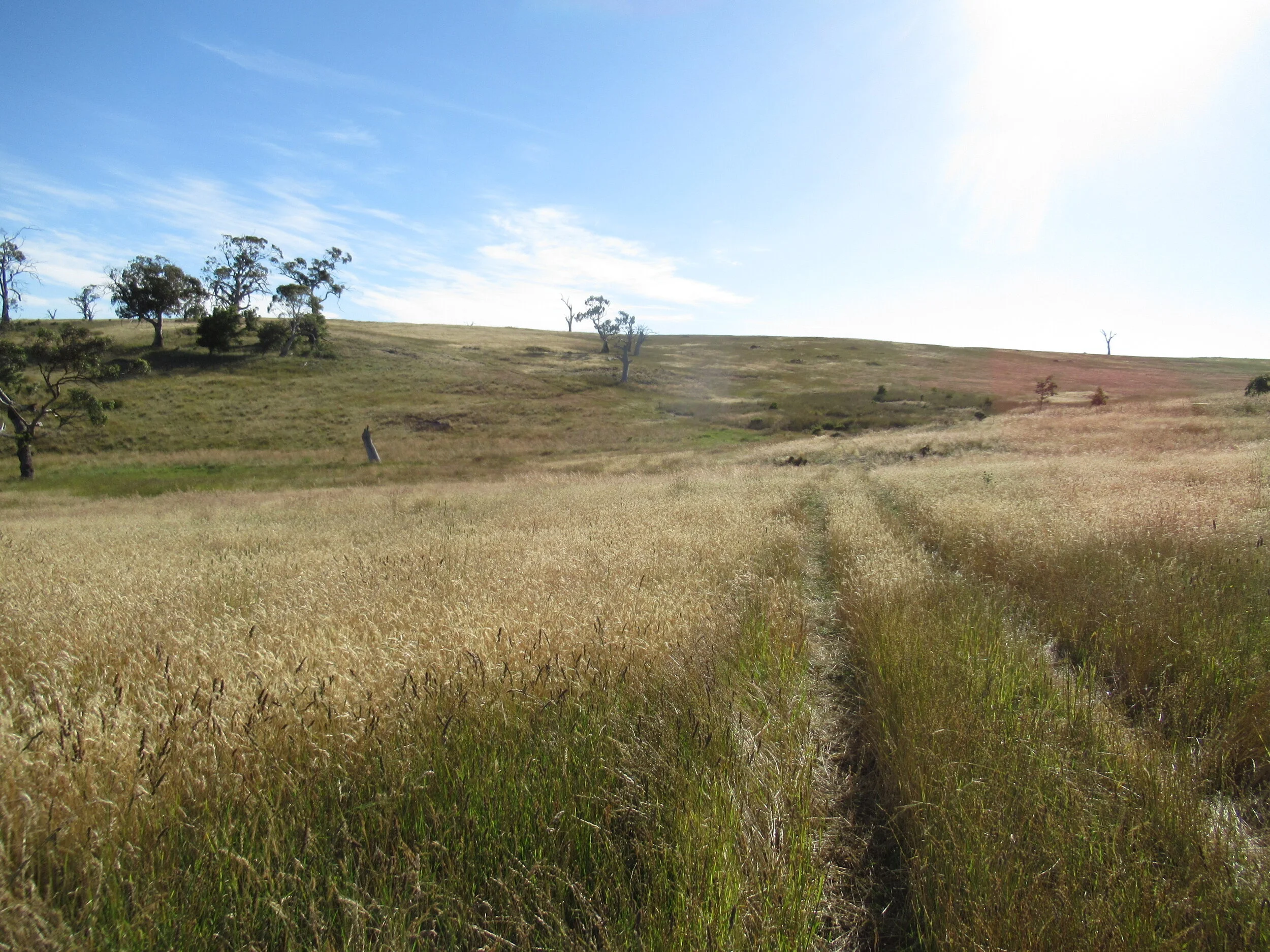
Shepherding Renaissance
Since I began “active shepherding” in 2014 as a way to help my flock find the biodiversity they need to stay healthy, I’ve gone through several cycles. The first was simply figuring out how SLOWLY they need to travel in order to eat on the move. The lesson for me and my dogs was to enter into what I call “sheep time”—actually a feeling of timelessness. Getting there took me the best part of a year.
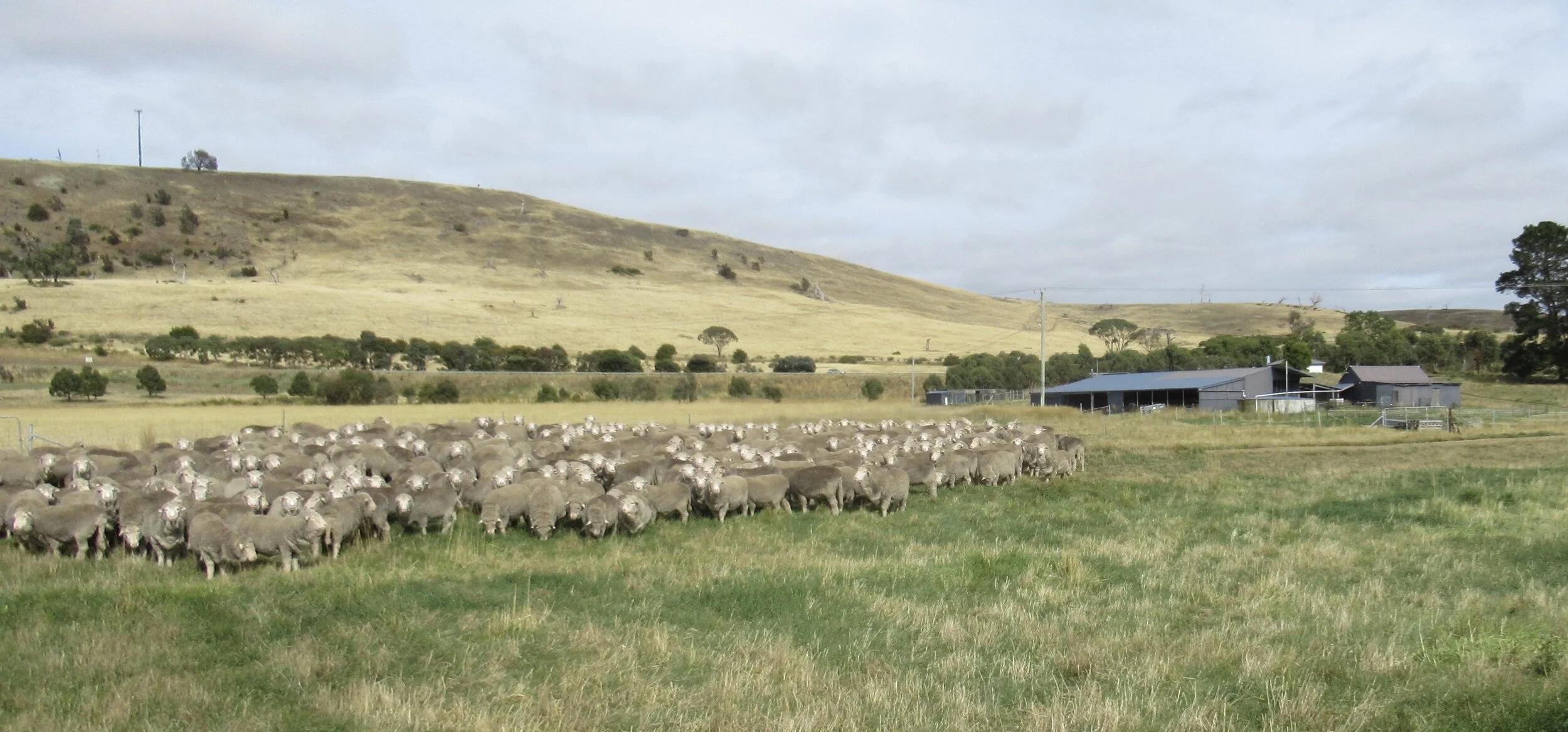
Go Slow and Wait
For the first time in months, this morning I put my backpack on and went to shepherd my sheep. And this afternoon, I’m writing the first Come Shepherding post in just over a year! Several things have conspired to create this lapse. The pandemic didn’t help, but the first real change came in May of last year, when I decided to try an experiment (there’s a surprise) and test whether my sheep are truly locally adapted.
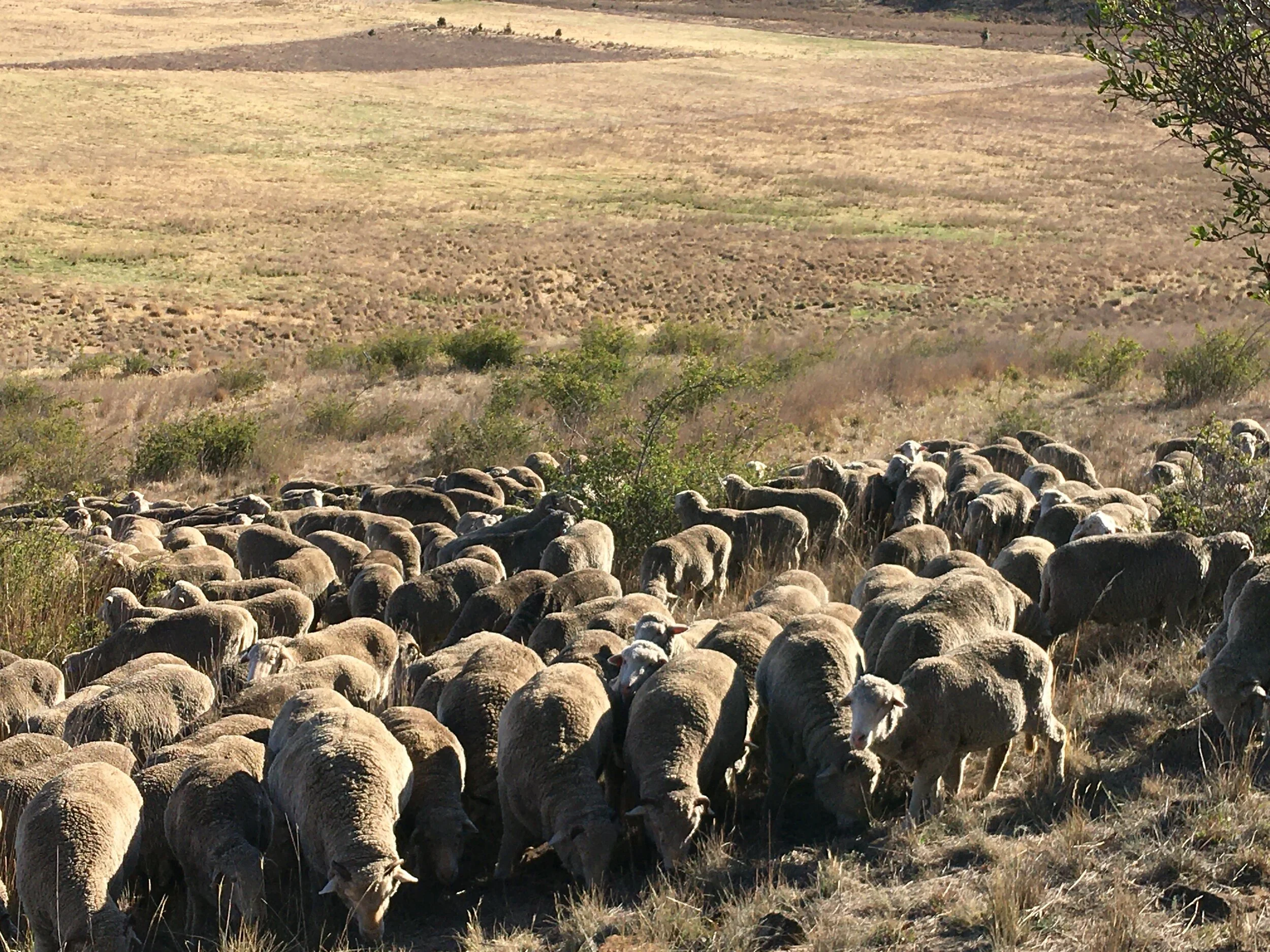
A sense of discovery
My stone soup adventures a couple of weeks ago were mostly a bust, with one delightful and important exception: I relearned key subtleties of active shepherding that I’d let slide over the last few years. Chief among them: the essence of shepherding is creating the opportunity for sheep to have a sense of discovery about their food. Parents will not be surprised.
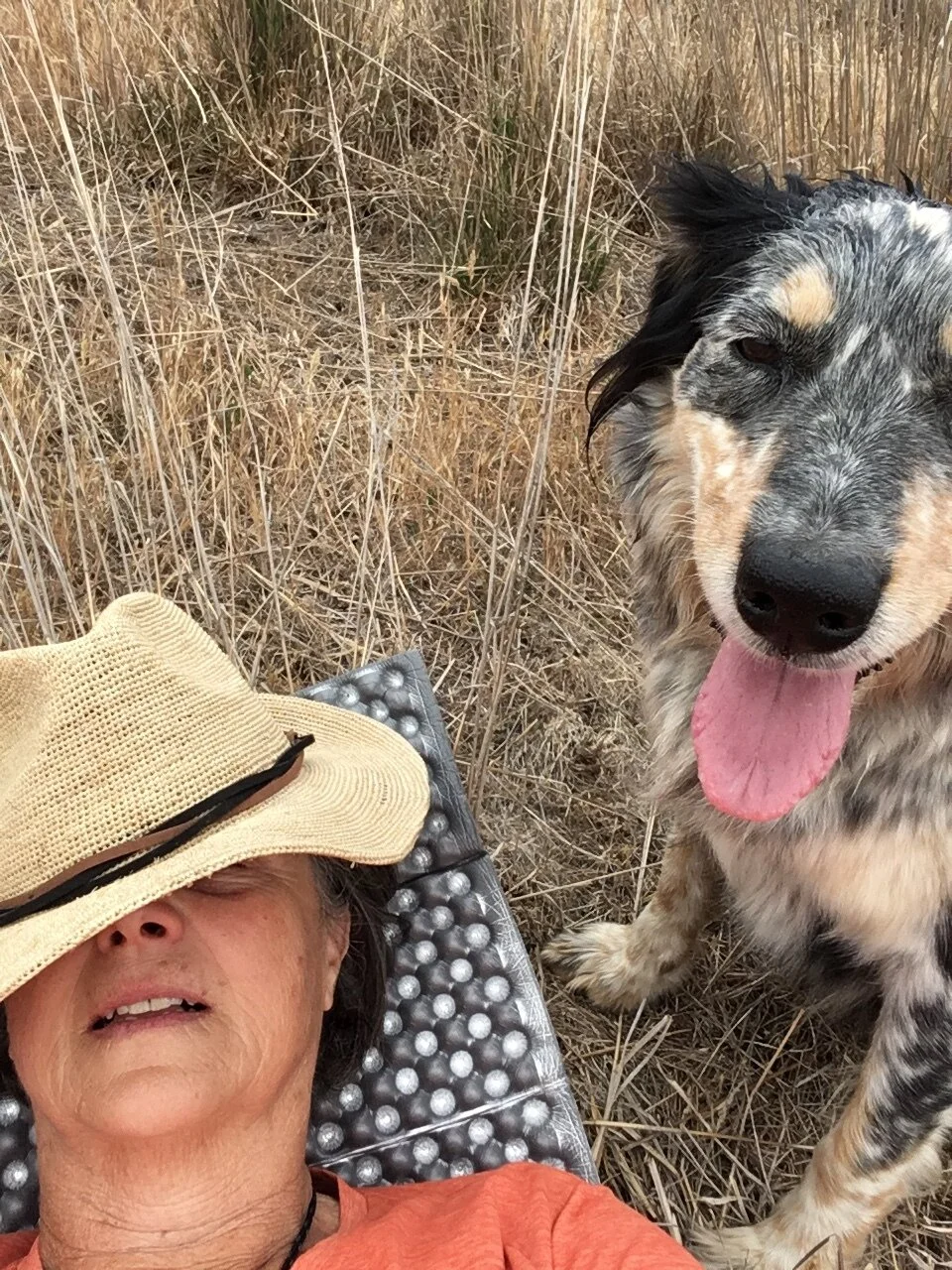
Walkabout Stone Soup
The challenges of keeping everyone well-nourished in this exceptionally dry summer are leading me into the shepherding equivalent of stone soup: creative use of the patches of good forage and biodiversity that are still around, while still keeping the flock safe from fire threats.

WGW Bushfire Plan
Saturday, 4 January. As I’m writing this, we’re experiencing a Very High Fire Danger day here in Tas, but nothing like what they are going through on the mainland. I’m inside, out of the heat, but listening to the 50 kph winds whistling around my house, and obsessively checking the Tas Fire Services website to see if any new fires have started up anywhere nearby. The southerly change (front) that is making it so windy has reduced the temperature, and blown away this morning’s smoke haze. Knowing just how dry the landscape is, though, keeps me on tenterhooks.

Strategy for a (very) dry spring
In the continuing extra dry conditions for Tasmania, shepherding has once again become a priority. We’ve had less than half of our annual average rainfall over the last 12 months, and with the Indian Ocean Dipole at a record high, it doesn’t seem likely we’ll see much precipitation before early 2020 when the sea surface temperature pattern is expected to return to a more neutral configuration. (See my other farm journal, Yarns from the Farm, for a discussion of the IOD.) Knowing what’s causing the dry, and even when it’s likely to finally let up, is useful but doesn’t get us very far in terms of how to manage this gracefully. Shepherding will help.

The fence that isn't there
As the sheep and I get better at foraging for diversity, fences often create problems. While gates are open between adjacent paddocks in a grazing area, and the sheep certainly know to use them, fences impede the natural grazing pattern.

Tree Herder
“We are tree-herds, we old Ents. Few enough of us are left now. Sheep get like shepherd, and shepherds like sheep, it is said; but slowly, and neither have long in the world. It is quicker and closer with trees and Ents, and they walk down the ages together.” J.R.R. Tolkien, The Lord of the Rings
When I first started farming I planted trees for my own sake, for the aesthetic of copses to break up the grassland expanses, and for the pleasure of hearing wind in the boughs. Then, as I learned more about how ecosystems work, and the pivotal role of diversity in creating resilience, I planted trees for the sake of the land.

Through the Lens: Taking a Summer Break from Writing
Back in my university student days, I took up photography with all the enthusiasm you would expect. I even learned how to develop and print my own photos. In my zeal, I took my trusty SLR camera with me everywhere, on every adventure. After a couple of years, though, I realised my world had shrunk to what I could see through the lens: I was framing my experiences by what would fit in the limited rectangle of the viewfinder. So I quit taking photographs, relying on the emulsion sheet of memory to record my adventures, hoping to regain a wide-angle experience. I regret not having a photographic record of those years, but I'm sure I was more present in each moment as a result.

A Suitcase is not a Proper Mother
As often happens to me, I mis-remembered this quote. It's not from the original Wilde play "The Importance of Being Earnest", but rather is a song entitled "A Handbag is not a Proper Mother" from the musical Ernest in Love, based on Wilde's play. Nevertheless, I'm sticking with my version, as I frequently feel like more like a suitcase than a handbag in the context of raising bottle lambs!

Kindergarden for Zac
On Friday, before breakfast, I finally gave in to Clara's silent pleading to go back to the flock, and walked Team Zac up to the place I thought the flock would be. They weren't. But Zac valiantly followed me up there, with Clara, Robert and Johannes in tow.

Highway Reserve, South
It was a chilly, windy day on the hill yesterday, but a perfectly lovely winter's graze. The flock currently have the run of White Gum Wood, the Grass Gully, Eagle Tree and the Back Gully. While there is a certain amount of biodiversity in all of those paddocks, the best native ecosystems are in the adjoining reserves.

The Mysterious Ailment
The scientist in me finds unexplained illness among my flock deeply unsatisfying. You may remember that I lost 4 ewes, none of them pregnant, during lambing. The post-mortem, frustratingly, could neither confirm nor rule out the most likely culprit: pulpy kidney (clostridium toxicity). There have been no further deaths, but I've been keeping an eye on a ewe who began losing her fleece not long after the mystery ailment episode.

Winter Shepherding
It's been frosty and dry for the past month or so, perfect winter shepherding weather, with sunny days and light winds. We are getting back into the swing of things, now that the lambs are capable of travelling well.

Zac!
A week ago Saturday was the official end of lambing, though no one apparently told the ewes. On Tuesday, ANZAC day, I found Zac, apparently disdained by his birth mother in favour of the other twin. I did my best to get them back together in the paddock. Zac was willing, but mama was not. Zac is now my baby--or more accurately, I'm his mama--a relationship that will continue as long as both of us are alive.

Easter Lambykins
It seems so odd to have lambs running about at Easter time, here in southern hemisphere autumn. This past week of lambing has been delightfully uneventful...

Lamb Surveillance: the Video Game
As the number of lambs increases, it gets trickier to find a track around the flock where I can see everyone, but not disturb any. Here's what my track looked like yesterday.
Come Shepherding
This journal is no longer active but you can browse the full archive of posts.
Experience the feeling of being out on the hill, get to know the individual characters in the flock and see the wildlife and landscape.
